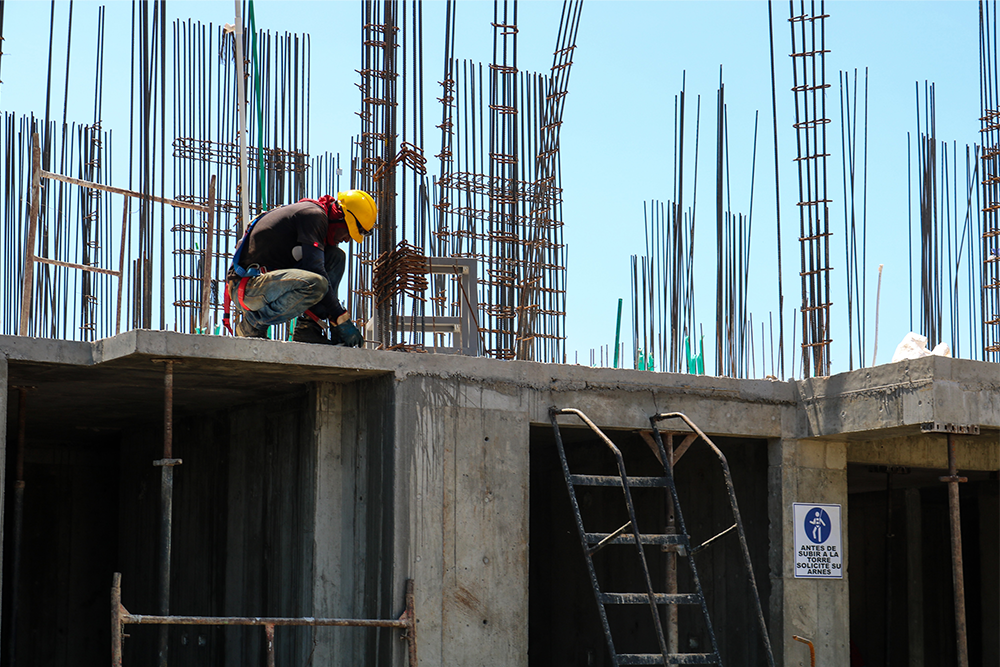1103 results found
Featured results



More results
This paper from EDHECinfra explores how institutional investors should incorporate ESG elements into the financial management of their portfolios.

This report leverages the experience of NGFS members and observers, as well as a survey of 25 central banks and 24 financial supervisors, to examine key challenges related to market transparency in green finance - particularly with regard to taxonomies; green external review and assessment; and climate transition metrics, frameworks, and market products. It also aims to inform a broad dialogue with market participants to find potential solutions to policy challenges.

Deloitte's Analytics Institute published this analysis of how new technology and data analytics can be used for predictive maintenance.

The LTIIA's report on Climate-Resilient Infrastructure: How to scale up private investment examines the current state of climate-resilient infrastructure investment and brings forward recommendations and proposals.

Five key infrastructure ideas from Climate Week NYC by our Director of Engagement, Rory Linehan and Partnership Manager, Daniel Galle.
Inflation continues to soar globally, the IMF forecasts inflation will rise from 4.7 percent in 2021 to 8.8 percent in 2022. In India, wholesale inflation has remained in double digits for more than a year. The IMF now expects global growth to slow from 6.0 percent in 2021 to 3.2 percent in 2022 and 2.7 percent in 2023.
Private investment in infrastructure remained stagnant for the eighth year in a row. Three trends to inform future policies to fund the significant shift to enable infrastructure to reach climate targets and address global inequalities.
Infrastructure Monitor is the GI Hub's annual flagship report on the state of investment in infrastructure. The 2022 report examines global private investment in infrastructure projects, infrastructure investment performance, availability of private capital and the role of MDBs in private investment in infrastructure.
Last week, the GI Hub facilitated an infrastructure roundtable in Toronto with Canadian private sector participants, industry associations, and government infrastructure agencies.
Watch the webinar hosted by GI Hub and IFC, in collaboration with the G20 Indonesian Presidency, on enhancing social inclusion and addressing subnational disparities
Last week we presented our final deliverables to the G20 Infrastructure Working Group at its fourth and final meeting under the Indonesian Presidency.
This recently updated directory of national and subnational project pipelines in G20 countries enables governments and industries track projects and assemble market analyses

Co-financing provide a supportive enabling environment that minimises risk exposures, catalysing private co-financing for infrastructure in middle- and low-income countries.


The QII Principles are voluntary, non-binding principles that reflect a common strategic direction and aspiration for quality infrastructure investment.

The Blueprint provides a set of evidence-based, voluntary, non-binding actions to advance the six elements of the G20 InfraTech Agenda.

The QII Principles are voluntary, non-binding principles that reflect a common strategic direction and aspiration for quality infrastructure investment.

At recent G20 meetings, the public and private sectors were aligned on many actions for strong, sustainable, balanced, and inclusive growth and recovery
Infrastructure is key to achieving fair and sustainable economic growth and climate targets. Three trends to stimulate the private sector to fund the large-scale change to enable infrastructure to reach its climate and development potential
Read our story on the importance of leveraging blended finance to drive private investment in sustainable infrastructure that’s featured in the July/August 2022 issue of InfraInvestor.




 Transformative Outcomes Through Infrastructure
Transformative Outcomes Through Infrastructure












